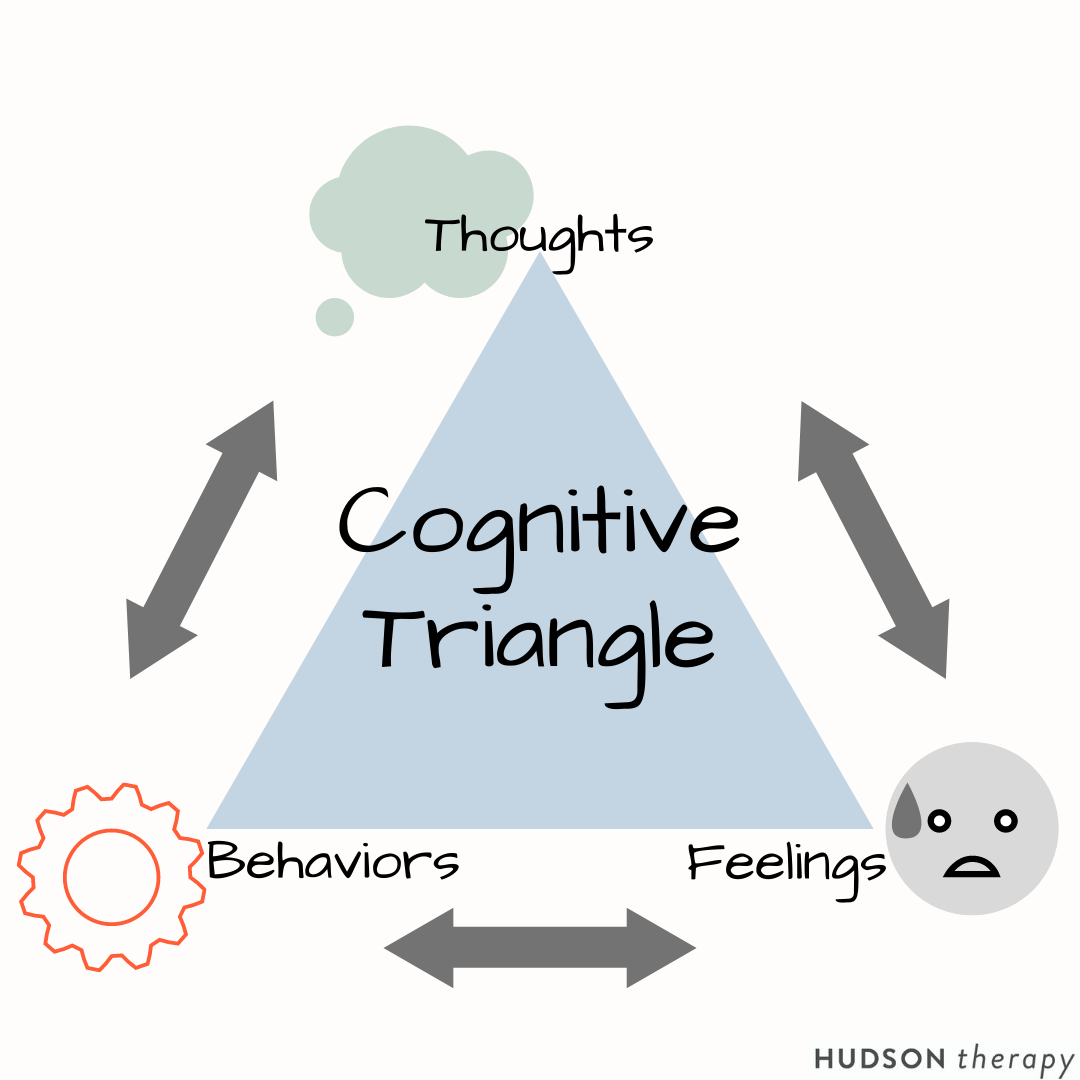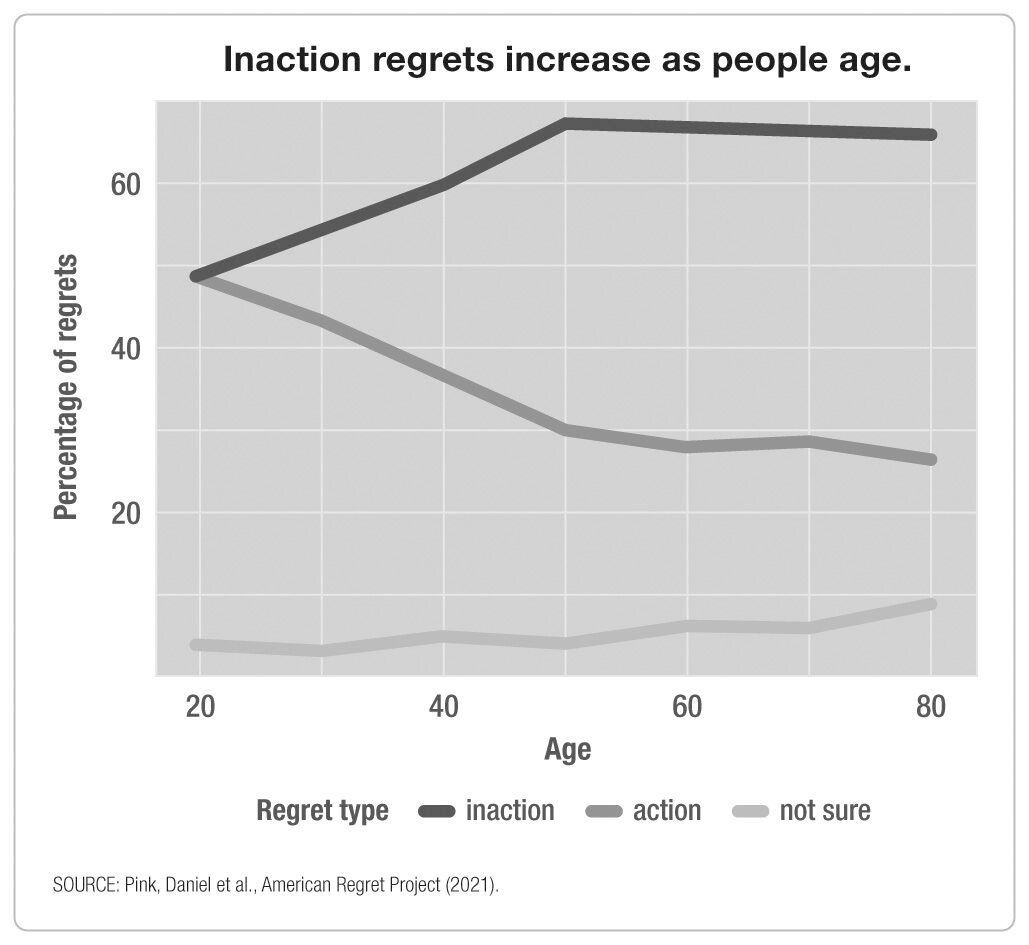No Regrets!? ...umm, you sure?
In the full lineup of unpleasant feelings, "regret" takes the cake. We have been conditioned to dodge it and deny it. Yet, we secretly wallow in it. But what if we could process it to propel us into living a fuller, richer, more meaningful life?

There are points in your life when you feel stuck, you want to make a move, or you simply just want to move on. Move on to a new opportunity or move on from an unfulfilling job, but you just can't. There is too much at stake, and you don't want to be wrong.
I was at that point last year. I wanted to be, do, and achieve more. But the structure of my life was not in congruence with my wants. I knew things had to change for me to feel self-actualized. And then, on one of the evenings, we were hosting a family friend, Dheeraj Pandey, for dinner. When he learned of my situation, he recommended I read the book - The Power of Regret by Daniel Pink. The book's title didn't make any situational sense; "I am trying to move forward, and he is asking me to learn about regrets!?" - I thought to myself.
I picked the book anyway and learned that it was precisely the point - looking back to move forward. Chapter after chapter, I kept diving into my consciousness and unraveling what I regretted in the past and why? And how I can optimize the regret in the future. It took me a while to complete the book because I was doing these "thought exercises" as I read along. And in the end, I did get unstuck. I gained interesting insights about myself.
In this article, I am sharing my learnings from the book. I hope it gives you a fresh perspective on regret, arguably one of the most negative emotions humans deal with.
How have you lived?
The word "regret" generates a strong negative reaction in us. In the full lineup of unpleasant feelings, regret takes the cake.
Something you wish you should have done or shouldn't have.
It's a feeling we vehemently dislike. So much so that we suppress regret every time it rears its ugly head. Because it makes us unhappy, depressed, and self-loathe, we tend to deny it altogether. Heard of the "No Regrets" quote, anyone? Or we brood on it and get stuck in it.
You see, the human mind creates counterfactuals and paints an imaginary picture of what might have been—the coulda-woulda-shoulda. We are wired to look back and ponder what could have been. So it is actually normal and human to feel regret.
If you have never experienced regret, it would imply that you never failed, you never made a mistake, and you never took a risk. You were never alive. How have you lived then? Or perhaps you are less human, more divine.
The traditional view of emotions is that they are either good or bad, positive or negative. And our societies and cultures implore us to stay positive [1]. But contrary to our cultural conditioning, accepting and processing our negative feelings helps us be emotionally agile. Rather than suppressing or brooding over them, approaching them with curiosity and compassion allow us to use them as a catalyst for defining future behavior [2].
After all, our thoughts, feelings, and behaviors are connected and feed each other.

This book is all about understanding, processing regret, and then tapping into its power to lead the life we desire for ourselves.
I. Understanding Regret
The author conducted World Regret Survey [3], and based on the deep structural analysis of thousands of regrets submitted by real people, here are the four core categories:
#1 Foundational Regret: Inaction that thwarted you from building a stable platform for life; arising from failure of foresight and conscientiousness
- Examples: not taking college seriously, not saving enough money, or not taking care of your health and well-being (physical, mental)
- Sounds like: if only I'd done the work
- Human needs: stability
#2 Boldness Regret: When you played it safe and missed opportunities that would have allowed you to live a richer, fuller life. It's those times when you did not give in to your inner "YOLO" screams.
- Examples: the promotion you didn't push for, the love you didn't confess, or the business idea you did not pursue.
- Sounds like: if only I'd taken that risk
- Human needs: growth, self-actualization
#3 Moral Regret: The times you deviated from your personal values and ethical code and your action/ inaction compromised your belief in your goodness
- Examples: when you broke a sacred vow, were unfair or disloyal, did not take care of your parents or children, your actions hurt and harmed others, when you watched injustice but did nothing to stop it
- Sounds like: if only I'd done the right thing
- Human needs: goodness, personal integrity
#4 Connection Regret: Relationships you did not nurture because you did not invest into them; they remained incomplete, or they came undone. When you neglect the people who help establish your own sense of wholeness
- Examples: friendships that you let die, that lover you ghosted, family members you couldn't forgive, the quality time you did not spend with your parents before they passed away
- Sounds like: if only I'd reached out
- Human need: love, significance, meaningful relationships
As you see above, all regrets arise from a fundamental human need. We regret foregone opportunities and unfulfilled obligations.
We all have an actual-self and we strive to achieve our "ideal-self: our hopes, wishes, and dreams." And our "ought-self: our duties, commitments, and responsibilities." The discrepancy between these three selves is where we find the motivation to grow and the angst to change. And it's the same space where regrets, too, are born. Our regrets are unique to us; they give us a glimpse of our psyche - a photographic negative of the life we desire. If we learn to process our existing regret base and anticipate future regrets, we can live a fuller, richer, and more meaningful life.
II. Processing Regret
As I read the book, I dove deep into my thoughts and feelings. I followed the steps below to ID my regrets and processed them to inform my future behaviors.
- Self-Disclosure: Admitting your regrets can be relieving. By divulging them, you can reduce their burden. You can write about them privately or share them with your trusted circle.
- Self-Compassion: Once you expose yourself like that, you are bound to feel a blow to your self-esteem. You run the risk of overidentifying with your mistakes. Humans are imperfect, and we all make mistakes. Normalize those feelings and treat yourself with kindness.
- Self-Distancing: Zoom out and gaze upon your situation dispassionately as an observer. Analyze it as a third person would. Focus on reconstruing your experiences to provide insight and closure.
- Undoing and At-leasting: These are two practical ways to reverse regretful actions. Making amends, apologizing, and reaching out can repair the damage. For instance, you can:
- call that long-lost friend now
- start paying off your debt to regain your financial stability
- resign from your toxic job
- invest in reviving your relationship with your parents/ siblings
- apologize to your ex for treating them badly
But undoing an action is not always possible; life is not that kind. For all those other cases, we try at-leasting. Our minds play tricks on us by creating pleasant counterfactuals that make us feel worse about our current situation. What if we responded by recasting our thoughts and creating a counterfactual of our choice? What if we found a silver lining? What if we thought about how the situation could have turned out worse and appreciated that it did not? For instance,
- I regret going to law school, but at least I met my wife there
- I regret not hugging my mom enough, but at least I made her proud
- I regret spending so much on my last trip, but at least it was an experience of a lifetime
- I regret falling in love with him, but at least we shared great times
As we get older, we regret what we didn't do much more than what we did. Over time, regrets of inaction easily outnumber regrets of action.

So, Start that business. Write that novel. Ask out that crush. Take your shot.
III. Anticipating and Optimizing Regret
While processing existing regrets brings us peace and stillness, anticipating regret allows us to change our behaviors, cultivate good habits, and make better decisions.
Here are a few examples of how I changed my behaviors and habits:
- I don't delay my annual health exams as I did before. I regret skipping it a few years ago, leading to a condition going undetected for two years.
- I have now reduced my work travel to spend more time with my younger son because I regret not being around as much when my first son was little.
- I now stand up for myself and my priorities more often at home and work because I regret not doing that earlier in my life.
Now, for decision-making, Jeff Bezos made Regret Minimization widely popular. In one of his early interviews [4], he said that the toughest decisions become incredibly easy for him when he applies this model.
The author has his own spin on this mental model, which he refers to as Regret Optimization. This model holds that we should devote time and effort to anticipate the core regrets only - foundation, boldness, moral, and connection. Anticipating and minimizing the regrets that fall outside these categories is not worthwhile. For instance, buying a microwave or lawn furniture does not involve any fundamental, enduring human need. We could make any choice and move on with it.
On the contrary, if the decision does involve one of the big four categories, employing Regret Optimization makes sense. When trying to make a consequential decision, project yourself into the future, say at 75 years of age. And now, from that future vantage point, ask yourself which choice offers you to build a solid foundation, take a sensible risk, do the right thing or make a meaningful connection. Anticipate the actions or inactions you will regret and choose the option that reduces or minimizes those.
At Last
Though we would like to live without regret and sometimes proudly insist that we have none, this is not really possible. Only dead people do not have regrets.
This book helped me come face to face with my regrets, of which I do have a healthy list. I undid and at-leasted a few. I sought forgiveness and forgave to repair the damaged relationships. I got over the awkwardness and called my friend with who I had lost touch for over a year. And I have used the regret optimization mental model for the few consequential decisions I had to make recently.
Overall, I have learned not to dodge negative emotions and not to wallow in them, either. I have cultivated the ability to be with all my feelings because they are a part of my reality and make me a whole human being.
I have learned to JUST BE.
I subscribe to the power of regret. Do you?
Since you have reached the end of this post, I assume you like my content. If so, click here to subscribe to my newsletter and get exclusive content from me.
Disclaimer
I am not compensated by companies for promoting, reviewing, or recommending their products or services.
References
- Why bad emotions are good: https://www.susandavid.com/podcast/why-bad-emotions-are-good
- Emotional Agility by Susan David
- World Regret Survey by Daniel Pink
- Jeff Bezos's Interview on Regret Minimization
- Herbert Simon's view on human decision-making, maximizing vs. satisficing